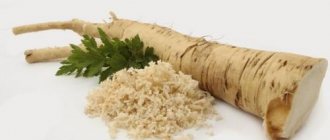www.bigstockphoto.com
During sleep, the body restores strength and internal reserves, rests and relaxes. Without proper sleep, it is impossible to maintain health, youth, a positive attitude, and performance. However, sound and deep sleep is a rare pleasure for many. The reasons are frequent stress, depression, anxiety, heavy workload, and the accelerated pace of modern life. If the sweet embrace of Morpheus is difficult to achieve or sleep is intermittent, shallow, filled with fears, nightmares, you should turn to a method proven over thousands of years - aromatherapy. Many essential oils for sleep are literally irreplaceable, as they gently and unobtrusively relax the nervous system, soothe, and relieve nervousness and irritability. In addition, natural remedies are safe, do not create addiction, and “work” delicately and naturally. Of course, you should choose plant esters that are characterized by the most powerful sedative, relaxing, and antidepressant effects.
The Best Essential Oils for Sleep
Aroma oils not only smell pleasant, but also have a scientifically proven effect on the psycho-emotional sphere:
- reduce anxiety levels;
- smooth out manifestations of nervousness, anxiety, irritability;
- relax the nervous system;
- normalize heart rate and blood pressure;
- restore emotional balance and set the mood for positivity.
The best anti-stress, calming and restorative aromatic oils have proven themselves to be lavender, chamomile, cedar, vetiver, lemon balm, ylang-ylang, and bergamot.
Who can use it?
Of course, lavender can be used to improve sleep in adults, but if not:
- no contraindications;
- allergic reactions;
- individual intolerance.
The situation is different with children, since most essential oils are not recommended for use by children under 3 years of age.
But lavender is an exception, because it is considered the safest for children. It is allowed to use lavender oil from 2 weeks of age, however, this should be done with caution.
First, you should do a stress test : dilute the oil with a neutral base in a ratio of 1:6 and apply to the area in the elbow area. If there is no reaction in the form of redness, itching and irritation, then lavender can be used.
From the age of 1-2 years, it is permissible to use essential oil for short-term aromatherapy in the children's bedroom. Until this time, oil (no more than 1 drop) or a decoction of lavender flowers can be added to a bath of water.
It is forbidden to use lavender ether in its pure form for application to the skin or mucous membranes of a child.
Lavender oil
Fragrant lavender oil is often recommended for meditation in Eastern spiritual practices. It has long been noted that it:
- promotes inner peace and harmony;
- relieves aggression, stress, irritability;
- “drives away” bad thoughts, feelings of envy, resentment;
- helps self-development and self-knowledge;
- reveals creative inclinations;
- enlightens the mind and senses.
From a scientific point of view, this effect is explained by the fact that the complex of bioactive substances of lavender oil normalizes the functions of the nervous and circulatory systems, hormonal levels, and stimulates the production of serotonin (“the hormone of happiness”). The sedative effect of lavender is due, among other things, to valeric acid, which is part of the ester, and is enhanced by the terpene mycene. The effectiveness of lavender oil in relation to mild forms of insomnia has been confirmed in practical studies.
It is noteworthy that lavender oil can provide not only relaxation and calm before bed, but also relieve headaches, clear the air of viruses and germs, and strengthen the immune system.
More details: Lavender Kingdom of Morpheus: Using Lavender Oil for Sleep
Calming properties of lavender oil
Among the wide range of beneficial qualities of lavender oil, the most famous is its ability to relax, balance emotions, smooth out mood swings, and suppress negativity. The components of the oil, entering the blood through the respiratory system or skin, stimulate the areas of the brain that control the limbic system. Accordingly, the emotional background stabilizes, peace, tranquility, and a positive attitude sets in. In addition, lavender corrects hormonal balance: promotes the production of serotonin (“the joy hormone”) and lowers cortisol levels. As a powerful antioxidant, it fights oxidative stress, reduces blood pressure, and stabilizes insulin levels.
Essential oils in general and lavender in particular have a huge advantage over pharmaceutical medications: they quickly and easily reach any point in the body, even the most difficult to reach. One drop of fragrant liquid contains (just imagine!) 40 million trillion very small molecules, which in a matter of seconds penetrate the lungs, blood and spread throughout the body. There are 40 thousand ether molecules for each cell of the human body, and they all affect it with their beneficial properties. Lavender has the highest penetrating ability among essential oils thanks to linalool, a compound that accelerates and improves the transport of associated components through the skin. Together with linalyl acetate, this alcohol provides the mild soothing effect of lavender oil.
Interesting! What oils are appropriate to use to get rid of blues and depression?
First of all, lavender is effective for insomnia that has an emotional background: stress, overexertion, nervous exhaustion. It is used for the following symptoms:
- difficulty falling asleep;
- interrupted sleep;
- nightmares;
- anxiety;
- tearfulness;
- hysterical reactions;
- panic states;
- overexcitement;
- hyperactivity (in children).
Practical tests have confirmed the effectiveness of lavender aromatherapy in eliminating nervousness, insomnia, and fatigue caused by intense student activities. Students who used lavender oil for sleep according to a schedule for a month achieved a significant improvement in the quality and duration of sleep, and got rid of depressive symptoms.
Another study examined a control group of subjects with mild chronic insomnia. Lavender again showed convincing results, with higher results in the women's group.
Since lavender is famous for its good analgesic effect, it is also suitable in cases where sleep disorders are accompanied by headaches and migraines. It will also come in handy during long journeys, frequent air travel, and changing time zones - the adaptogenic properties of the oil will reconfigure the body and help it get used to the changed conditions.
Did you know? Heart problems are a common cause of lack of sleep. Rapid heartbeat, high blood pressure, and shortness of breath prevent those suffering from cardiovascular pathologies from getting a good night's sleep. Unlike pharmaceutical sleeping pills, lavender oil in such cases is much more beneficial and has a complex effect. It normalizes blood pressure and heart rate, tones the walls of blood vessels, suppresses inflammation, improves hematopoiesis, and serves as a mild antispasmodic. In one clinical study, patients undergoing inpatient treatment for ischemia had their rooms scented at night with lavender oil (2 drops on a tissue next to the pillow). The results were compared with a control group of patients without any aromatherapy. The quality of a night's rest with the scent of lavender was incomparably better, and this was in an uncomfortable hospital environment!
Chamomile essential
In aromatherapy, this modest flower is nicknamed the keeper of dreams for its relaxing effect on the central nervous system. In addition, this is a “female” oil, invaluable for menopausal conditions, menstrual syndrome and neuroses associated with hormone imbalance.
Aromatizing the bedroom before resting (3-5 drops of chamomile oil in an aroma lamp) for 15-20 minutes will ensure deeper and longer sleep, completely restoring strength and vigor in the morning. This scent is good before important events and making difficult decisions, as it helps to discard unnecessary things, focus on the main thing, see prospects more clearly, and concentrate internal reserves.
Instead of an aroma lamp, chamomile can be used as part of a relaxing bath before bed: the water is not hot (37-39 degrees), soak the salt with 5-7 drops of sleep oil, dissolve in water, time - 15 minutes. In addition to relaxation, chamomile will cleanse and tone the skin, making it soft and silky.
If you don’t really like the green-herbaceous chamomile scent as a solo scent, it can be combined with bergamot, rose, lavender, and orange.
Cream that helps you sleep
The cream, rather an oil mixture, is applied to the temples, forehead, neck, and feet. Inhaling a soothing aroma helps you relax and fall asleep peacefully. Natural night cream helps you sleep and cares for your skin at the same time. A rejuvenating blend of oils restores the skin's fresh appearance.
Ingredients
- 5 drops frankincense essential oil
- 5 drops lavender essential oil
- 1 teaspoon organic coconut oil
- ½ teaspoon olive oil
- Small container or jar for mixing and storage
Preparation
Soften the coconut oil. To do this, place a jar of coconut oil in a container of hot water. The melting point is 24*. You will need 1 teaspoon of coconut oil.
Add other oils and stir. Apply to face and body with light massage movements. Allow the mixture to absorb into the skin. The cream can be stored in the refrigerator for several weeks.
Vetiver oil
Translated from Hindi, vetiver ester means "oil of calm", which emphasizes its calming properties. In addition, vetiver relieves muscle tension and pain, activates metabolic processes, and has a beneficial effect on the musculoskeletal system. Therefore, a warm 20-minute bath with a few drops of vetiver oil (no more than 4) is “just what the doctor ordered” after a stressful, difficult day at work. A relaxing massage shortly before bed will also give an excellent result: 5 drops of vetiver per 15 ml of massage cream or any base oil.
By the way, when massaged with essential oil, its components enter the bloodstream within 5 minutes and reach maximum concentration after 20. After an hour and a half, the active essential ingredients are completely eliminated from the body. It would be a good idea to take this information into account when choosing the time of the procedure.
Vetiver oil has a complex effect on the emotional sphere:
- stabilizes and calms;
- eliminates depressive symptoms;
- helps cope with asthenic syndrome, panic attacks, uncertainty, depression;
- creates optimistic attitudes;
- improves mood;
- creates a positive attitude towards the environment.
Insomnia, chronic fatigue, depression, migraines, and self-doubt can be relieved if you wear an aroma pendant with a couple of drops of vetiver ether. The aroma of vetiver is considered “masculine”, so if you want to smooth out its pronounced woody-smoky notes, you can prepare an aroma mixture: vetiver (2 drops), tangerine (3 drops), rose (1 drop). This anti-stress blend is used in aroma stones, sachets, medallions, cold inhalations, and aroma lamps.
What essential oils will help restore disturbed sleep?
Topping the sleepy list is lavender essential oil. It has the most pronounced calming and relaxing effect. Emotionally, lavender brings the inner world into a state of harmony. Anxiety, irritability, panic attacks, and general nervous excitement recede before the enchanting smell.
It is reliably known that the English queens Elizabeth I and Victoria highly valued lavender oil. During Victoria's reign, the royal palace was scented with the scent of lavender. Read more in the article History of Lavender. Clinical trials have shown that inhaling lavender oil reduces stress and anxiety and restores heart rate.
Lavender is followed by frankincense essential oil. The oil is suitable for relieving depression and anxiety. Incense creates a calming atmosphere. Calm energy helps bring the mind and soul into balance and restore lost harmony. In aromatherapy, incense is used for meditation and relaxation. Aromatherapists recommend mixing incense in a 1:1 ratio with bergamot oil for a soothing massage.
Rose essential oil helps calm raging female emotions. The scent of rose relieves anxiety and helps cope with panic attacks. During periods of grief and grief, aromatherapy experts recommend rose essential oil. To relieve anxiety, inhale the scent of roses and take a warm foot bath with rose oil.
Vetiver essential oil has a tart, sweetish odor. By inhaling vetiver, you become aware of yourself again. A feeling of calm and stability comes. The aroma of vetiver calms the nervous system, reduces panic attacks, and restores disrupted biorhythms.
Ylang-ylang helps calm a child, ward off night terrors, and relieve anxiety. Ylang-ylang essential oil is considered an aphrodisiac. Ylang-ylang is often included in oil mixtures for erotic massage. Ylang-ylang is a mild sedative that can help with insomnia.
Melissa oil
The use of lemon balm oil for sleep is indicated in cases where it is difficult to achieve complete relaxation. It normalizes heart rate and, in general, the functions of the cardiovascular and nervous systems, has a beneficial effect on brain function, and relieves emotional and physical stress. To relieve headaches and reduce tension, just drop one drop of ether on each temple and massage lightly for 5-10 minutes (if you are not allergic to this oil). For the same purpose, apply a cold compress to the forehead - a napkin soaked in water with a couple of drops of essential oil.
Melissa is one of the best adaptogens, so it is used for changes in life, important changes, and difficult situations. A fresh aroma activates internal reserves, strengthens defense mechanisms, smoothes out mood swings, and sets the mood for positivity.
Adding lemon balm oil to shower gels and shampoos (3-5 drops for every 15 ml of product) will help you relax after training, sports games, and swimming. You can also flavor tea (strictly if you are not allergic to lemon balm): 3 drops of oil per 200 g of herbal or tea mixture.
Oil recipe for relaxation and sound sleep
The perfect combination of oils to help relieve tension and push aside the worries of the past day. Use 100% natural lavender essential oil and pure unrefined coconut oil.
Ingredients
- 3 drops pure lavender oil
- 1 teaspoon coconut or almond oil
Preparation
Mix lavender oil, coconut oil or almond oil in your palm. Before going to bed, apply the mixture to your neck, along your natural hairline, and to your wrists and massage gently. Apply the mixture of oils to clean feet and perform a self-massage. To relieve stress before bed, it is recommended to prepare a foot bath with lavender essential oil.
Ylang-ylang oil
In Ayurveda, ylang-ylang ether is believed to bring joy and harmony between the mind and emotions. This well-known aphrodisiac is also good for normalizing sleep disorders of various kinds, as it has a calming effect on the nervous system, regulates the release of adrenaline, lowers muscle tone, regulates heart rate and breathing, and effectively relaxes.
If your sleep is interrupted, you often wake up at night and have difficulty falling asleep again, try aromatizing the air in the bedroom with a spray bottle with a few drops of ylang-ylang before resting, or placing an aroma with this scent at your head. A good mixture of ylang-ylang with lemongrass and lavender (2:2:3), it is used for atomizers and aroma lamps.
Best Scents to Use in an Aromatherapy Pillow
Insomnia and other sleep disorders are often treated with essential oils added to bedding to help people sleep better.
Gone are the days of stuffing pillows with herbs. Today, people suffering from light sleep and inability to fall asleep can opt for special aromatherapy pillow inserts instead. Aromatherapy pillow inserts are a convenient, clean way to add essential oils to your bedding. Manufacturers develop and sell fragrance oils for temporary use. Don't worry about purchasing a special pillow for this therapy. You can turn any pillow into an aromatherapy pillow with an insert full of essential oils. When the odor becomes weak, the user replaces the insert. Which scent to use depends on personal preference and experience. Aromatherapy patients often try different scents before deciding what works best for them.
Cedar oil
Low energy and depression are often seasonal, appearing in late autumn and on the eve of spring. At the same time, the body is attacked by viruses and infections, colds and exacerbations of chronic ailments lie in wait. There is an essential oil that “kills” two birds with one stone – it normalizes sleep and the emotional sphere, and protects the immune system from dangerous microorganisms. This miracle cure is cedar oil.
Everyone has heard about its antiseptic properties and benefits for the respiratory system, but the fact that it is a good sedative and anti-stress drug is not so widely known. However, the beneficial effects of ether on the nervous system, brain and psycho-emotional state are undeniable. The fresh, woody aroma of cedar oil for sleep is good for use in an aromatherapy aroma, and this procedure, carried out in the bedroom before rest, will help restore the body's immune forces.
Cold inhalations with cedar ether are useful both at home and at work: a couple of drops on a handkerchief or napkin, inhale for several minutes throughout the day.
Application
For adults, you can use essential oils from any plant and fruit, but not every one is suitable for a child. Doctors do not recommend using this product for newborns and children under two months. From 2 months and for a child up to one year, it is allowed to use lavender, orange, chamomile, and sandalwood oil. Although for such young children some advise adding an aromatic liquid to the bath or using it for massage, it is better not to allow the very delicate baby skin to come into contact with essential products. For a child under one year old, it is advisable to make aromatic lamps, soak scraps of fabric with the product, or wear aromatic medallions. And for children from 2 years of age, it is quite safe to spread aromatic liquids on the skin and add them to the bath, but in small proportions, no more than 5 drops.
There are quite a few different ways you can use aromatic mixtures to treat various diseases and for a full, good sleep. The most popular methods are the following:
aroma lamps. This method is the most widely used. Usually a special aroma lamp is used, but if you don’t have one, you can wet a napkin with water and drop a little aromatic product, after which the wet napkin should be placed on the radiator or fireplace. You can apply a couple of drops to a regular light bulb, after which you need to turn it on; when it gets hot, the liquid will gradually evaporate. Modern air humidifiers have a special section for aroma oils. And some use a regular candle, onto which a little mixture is dripped. The aroma lamp should not be left on all night. You can use it for about half an hour in the evening; You can use soothing essential oils for sleep while taking aromatic baths. Thanks to such baths, you can perfectly relax after a hard day at work, the condition of the skin will improve, it will be saturated with useful components that slow down the aging of the skin. However, a bath requires much more aromatic product than a lamp. Typically, about five drops of the substance are used for every 10 liters of water. After taking a shower, you can rinse your hair with a fragrant liquid, so that the pleasant smell will remain throughout the night. For rinsing, it is enough to use five drops per liter of water; Massage is an excellent method to help you relax. If you add a couple of drops of aromatic liquid to the massage gel, the effectiveness will increase many times. The procedure does not have to be performed by an experienced specialist. A loved one can calm and relax a tired person with pleasant, gentle movements and kneading
It is important to avoid intense, sudden movements to avoid pain; scented pillows. You can use special small pads, although ordinary soft toys, onto which a little aromatic liquid is applied, are excellent.
This creates a calming, peaceful environment in the room. Properly selected aromas promote good sleep and excellent mood; internal use. Not all aromatic liquids can be taken orally, so if you have any doubts about a particular product, it is advisable to consult a specialist. Typically, you can take lavender, sage, lemon balm, anise and mint oils for internal use. You can apply no more than three drops to a sugar cube, which is placed under the tongue. Or you can add a couple of drops to warmed milk and drink half an hour before going to bed.
Almost all essential oils for adult sleep work fairly quickly, but it is advisable to use them for a week or longer. You can mix two or three scents and then replace them with others after a couple of weeks.
Bergamot oil
A strong natural antidepressant, bergamot oil is good primarily for eliminating symptoms such as constant fatigue, lack of interest in life, depression and despondency. Once in the body, volatile compounds of bergamot activate the release of dopamine and serotonin, which are “responsible” for the feeling of pleasure, calmness, and confidence.
Aromatherapy with bergamot looks like this: in the morning - a shower with gel and shampoo enriched with this ester (2-3 drops per single portion of the product), throughout the day - periodic cold inhalations (aroma sachet or medallion) and tea flavored with bergamot, and in the evening - a warm bath and aromatherapy session (3-5 drops in aroma lamp). You can supplement the therapy with aroma combing: apply a few drops to the teeth of a wooden comb, comb your hair for about five minutes in different directions. In the morning, this procedure will provide your hair with additional protection from damage and loss, and at night it will relax the body, strengthen the hair, make it stronger and thicker.
woman-in-bath_002.jpg
- There is no need for bright lights in the bathroom. Dim the lights or use unscented candles instead of electric lights. You can turn on soothing music, sounds of nature, or special compositions for falling asleep. This is a great way to prepare your body and mind for a night's sleep.
- Choose a scent that you really like. Fragrance oils can affect different people differently. Therefore, from the list above, select oils whose smell, at a minimum, does not irritate you.
- Instead of a hot bath, which is more energizing than relaxing, try a warm bath. While the bath is filling, add 2-3 drops of the selected oil to it, placing the container with it under running water. This will help distribute it evenly. Essential oils do not dissolve in water. But you can mix them with milk, cream, alcohol or honey before adding them to water. In this form, the oil is guaranteed not to cause skin irritation or burns.
- Enjoy a bath with essential oil for 5-10 minutes and then rinse with water. If you want to use soap or shower gel, it must be unscented. The same applies to the cream you might want to use after your bath. Remember not to mix the scents of essential oils and detergents or cosmetics.
- Once you're done, dry off with a towel. After a bath with aromatic oils, it is good to use talc on the body. It regulates temperature well and prevents the body from overheating during sleep. In addition, talc will help keep you feeling fresh throughout the night.
Essential oils for children
Increased activity and excitability, anxiety before performances or tests at school sometimes cause sleep disorders in children. What essential oils can be used for aromatherapy for children? First of all – citrus fruits. Tangerine, lemon, orange will muffle anxiety, calm you down, and give you confidence. For better sleep, the bedroom is scented with lavender, lemon balm, bergamot (the number of drops is half that for adults). It makes sense to add 2 drops of chamomile and 1 drop of lavender oils to the bath. The same blend is suitable for a massage procedure.
Contraindications for the use of essential oils include acute and chronic illnesses, individual sensitivity, and uncertainty about the high quality of the oil.
The safest esters for children are esters of lavender, rose, chamomile, and sandalwood. They relax, calm, promote balance and peace.
Essential oils to calm the nervous system during irritability
Absolutely everything annoys you: a missed bus (even if the next one arrives in 2 minutes), taxes (the very thought of them causes physical suffering), heavily toasted bread in a bakery, the weather (no comments!), obnoxious neighbors, the arrow on new tights, waiting elevator, monotonous menu in the dining room (when will this stop?) and much, much more. Endless questions without answers do not allow you to live in peace: what is this car doing on the highway; once again a finger cut by the edge of a paper; always dirty sidewalks; constant traffic jams (where are the traffic police looking?); Why are you looking at me like that? what else do you need? - In a word, we got everything and everyone. The list of everything that causes an inadequate reaction can be continued indefinitely. If you think that all of the above applies to you, then it’s time to resort to the help of essential oils.
Basic component: oregano or marjoram.
For massage:
Massage the solar plexus area and arch of the foot with 2 drops of oil during the day and in case of conflict.
For baths:
To calm the nervous system, mix 10 ml of marjoram essential oil with 30 ml of bath base. Take a warm (38 °C) bath for 20 minutes, after pouring half the bottle with the prepared mixture into it.
For oral administration, mix:
- Essential oil of navel nobilis 2 drops
- Greenland rosemary essential oil 2 drops
- 1 coffee spoon of honey
Keep it in your mouth until completely absorbed. Calm! Only peace!
Additional recommendations:
- Take tryptophan treatment. This aromatic alpha amino acid not only activates the immune system, but also participates in many important processes occurring in the human body, in particular, it precedes the synthesis of serotonin, the so-called joy hormone, and melatonin, the sleep hormone.
- Take Omega-3 polyunsaturated fatty acids at the rate of 3 capsules in the evening with meals (continuously).
- Have pity on your loved ones - they suffer much more than others from your irritability and mood swings. Of course, everyone can have their own eccentricities, but everything has its own boundaries and defining them is your task. If you can’t control yourself, leave the house and take a short walk so as not to aggravate the situation and save nerves for yourself and those around you.
- It should be noted that irritability is not always the result of external influence (situation or behavior of another person). Often this is a manifestation, for example, of dissatisfaction with oneself, one’s results or what is happening, an elementary inability to control one’s state in any situation, to extinguish one’s own negative emotions, as well as a consequence of nicotine withdrawal (cessation of smoking), general fatigue (poor sleep, stress, overwork), allergies (particularly hay fever), menopause (or other hormonal disorders). In women, high irritability is especially common and can lead to various disorders, including bulimia.
- Complete a course of treatment with magnesium preparations at the rate of 4 capsules per day until you feel better, then 2 capsules per day for a long time.
The next section of the article talks about which essential oils calm the nervous system when overexcited.
How to use
Aroma lamp, aroma stone
Aromatizing a room using an aroma lamp or diffuser is the most traditional way of using essential oils. The standard rules for the procedure are simple: pour water into the lamp, add a few drops of oil (or aroma mixture), light a candle and enjoy the fragrance for 15-20 minutes. Of course, when using oil for sleep after an aroma session, activity, physical and emotional stress are excluded - it is better to do it immediately before going to bed.
An aroma stone affects a smaller space than an aroma lamp, so the algorithm for its use is slightly different: drop a few drops of ether on the stone and place it on the bedside table. There is no need to control the time - the ether itself will evaporate after an hour or two. The aroma stone produces a weaker, almost inaudible odor, so the effect may not be immediately noticeable.
Important! It is recommended to use one scent or mixture for no longer than 2 weeks, then you should change the oil to another.
Aromatic baths
After the aroma bath they do not wash or even dry themselves, so it is better to take a hygienic shower before it. And to make an aromatherapy bath, you need to first mix the selected oil or aroma composition with an emulsifier:
- honey;
- cream (yogurt, kefir);
- red wine;
- soak in salt (sea or regular table salt).
The main condition is a comfortable temperature: a bath that is too hot will not relax you, but on the contrary, it will excite you. Aromatic baths can be taken daily, every other day or once a week - as desired.
Massage with essential oils
Regular massage with oil (and even self-massage) gives miraculous results: muscles relax, thoughts and worries “evaporate” from the head, emotions are replaced by peace and tranquility. Adding essential oils to massage products greatly enhances the effect and promotes the rapid onset of deep and restful sleep.
Massage, in the absence of a specialist, can be done independently, kneading tense muscles, joints, head and face. But foot massage deserves special attention, because thousands of nerve endings connected to all organs and systems are concentrated there. It wouldn’t hurt to take a hot foot bath first to steam and relax your feet (5-6 drops of any relaxing oil in the water, time 10-15 minutes). Then walk on the massage mat or knead your feet with your hands: first, light stroking movements, then massaging in a circular motion with pressing on some points, then reducing the pressure in the reverse order.
Homemade recipe for a relaxing massage mixture:
- 15 ml of base (almond, apricot, peach or grape seed oil);
- 2-3 ml wheat germ oil;
- 3 drops each of ylang-ylang, chamomile and lavender esters.
It is better to store the mixture in the refrigerator and heat it before use.
Features of using essential oils to improve sleep
Essential oil for relaxation and sleep is used in different forms. To achieve a therapeutic effect, you need to choose the right aroma. Most often these are those herbs that have a sedative effect on humans: chamomile, bergamot, lavender. You can overcome insomnia with the help of lemon balm, jasmine, and sage.
For better effect and comprehensive treatment, you can combine several esters to create your own recipes. But when composing combinations, consider the basic rules of aromatherapy:
- All floral scents can be mixed, but lavender is not compatible with rosemary.
- Citrus and bergamot are combined with cypress, anise, juniper, and cedar oils.
- Tea tree does not combine with ylang-ylang; such a duet will provoke excessive excitability and irritability.
- Peppermint oil does not mix with fennel and orange.
Advice! To quickly relax and fall asleep, try to combine 2-3 scents. Also, you should not use more than one oil with low volatility, otherwise you will experience increased irritability and feel overwhelmed.
Types of Essential Oils for Sleep
To normalize dreams, choose oils that give calm, relax, and relieve stress. Inhaling the following floral and citrus aromas will quickly set you up for a sound and healthy sleep:
- Benzoin calms the mind before an important event or after severe stress.
- Bergamot and sage (not only oils, but also decoctions) are used to treat depression.
- Ylang-ylang, sandalwood, juniper help normalize blood pressure and calm the nerves.
- Black cumin eliminates headaches, relieves stress, treats depression and insomnia.
- Rosemary, lemon balm, orange, frankincense, fennel, mandarin, marjoram, jasmine are aimed at treating sleep disorders, improving mood, and restoring strength.
- Anise, cypress, fir normalize the emotional state during stress, fight negativity, and reduce irritability.
- Lavender relieves overexcitement, muscle spasms, and headaches.
- Coriander and laurel relieve excessive anxiety and unreasonable excitement.
- Mint restores after heavy physical exertion and fights nervous breakdowns.
If you suffer from restless sleep, take advantage of the properties of neroli and chamomile. Sweet lovers breathe in vanilla at night, which improves their mood and drives away negative, anxious thoughts. You can purchase essential oil and accessories that help you use it at a pharmacy or cosmetics store.
Various uses
Essential oils designed to help restore sound sleep have different uses. Classically, the mixture is poured into a special lamp, where it is heated and releases the aroma. This method is easy to practice at home. Inhalations, baths, massages are physiotherapeutic methods that can be used independently.
Water treatments
To feel the relaxation of not only the mind, but also the muscles, hydrotherapy is used. It is recommended to add 5-6 drops of essential oil to the water; for older people, the dose is halved. To relieve tired legs, use baths. This aromatherapy method is suitable for athletes and people with physically exhausting work.
Aroma baths are carried out immediately before bed, lasting 5-20 minutes. Relaxation takes place in silence, try to free yourself from negative and disturbing thoughts. Pre-cleanse your skin, rinse off sweat and dirt. During therapy, the use of cosmetics is prohibited. The water temperature should be comfortable (not higher than 36°C).
Massage
Massage can be done at any convenient time. The main thing is to regularly work on the muscles, relieving excess tension. The procedure is always carried out using products that allow the hands to better glide over the body. Oils are also added to help maintain skin tone.
For good sleep, it is recommended to add esters to base oils. For a 15 ml jar, 5 drops of aromatherapy are enough.
After the massage, you need to lie down for half an hour and try not to think about the bad. You can go outside only after an hour, and it is not recommended to play sports. Therefore, the procedure is usually done a few hours before bedtime.
Inhalation
Inhalations are recommended for the treatment of bronchitis, pneumonia, and acute respiratory viral infections. If you use soothing essential oils for sound sleep, the procedure not only restores breathing, but also relieves stress. Types of physiotherapy:
- Cold inhalations. To do this, you need to inhale essential oils through a paper towel or napkin. It is enough to apply 2-3 drops of the product.
- Hot inhalations. Carried out using a nebulizer. If it is not there, then add a few drops of oil to hot water. To breathe in the vapors, place a towel over your head and close your eyes.
Advice! Inhalation by any method takes 5-10 minutes. It is not recommended to inhale several aromas at once. Treatment of sleep disorders should not exceed two weeks. Oils tend to accumulate, which reduces the therapeutic effect. Therefore, it is necessary to take a break and gradually change broadcasts.
Therapeutic pillow
Pillows impregnated with aromas are recommended for use during periods of exacerbation of sleep disorders. You can buy it or make it yourself from collected medicinal herbs.
According to reviews from people who practice aromatherapy, the most suitable essential oil for good sleep is lavender. It is used to impregnate pillows. It does not leave marks on the bedding, is easy to wash, and does not irritate the skin. Therefore, before going to bed, you can drop a few drops of soothing ether on your pillowcase. This will help you fall asleep quickly and soundly.
Scenting the air in the bedroom
To fill the room with a pleasant fragrance, you need to ventilate the room, and then close the windows and doors for 20-30 minutes.
The following devices are used to spread soothing aromas throughout the bedroom:
- diffuser;
- lamp;
- flavored water that is sprayed around the room;
- sachet (bag soaked in oils);
- aroma stone.
The procedure is carried out immediately before bedtime. If you use a sachet or aroma stone, place it near your bed all night. When lighting a lamp, take precautions: do not fall asleep until you extinguish the candle.
Aromatherapy for children
Children, whose nervous system has not yet strengthened, often cannot fall asleep and wake up in the middle of the night crying. They feel unsure of their abilities, are afraid of the dark, and have a developed imagination. Therefore, it is recommended to use soothing oils to normalize a child’s sleep. Safe esters that can be used from 2 weeks of a baby’s life:
- chamomile;
- lavender;
- dill.
It is recommended to add 1-2 drops of oil to the water while bathing before bed. Children over 6 years old can scent the room and use scented pillows.
To determine the cause of your baby's restlessness at night, you need to contact your pediatrician and consult a neurologist. You can use aromatherapy for calm only if you are sure there is no allergy. Monitor the child's condition during treatment.
Limitations for use and precautions
Home treatment with aromatherapy may cause side effects: breathing problems, skin rashes, headache, fatigue, nausea, vomiting. If they appear, ventilate the room and take an anti-allergy medication. To prevent these symptoms from occurring, follow these rules:
- do not drink essential oils, especially in their pure form;
- Before the procedure with new oil, perform an allergy test;
- do not increase the dosage;
- buy products in pharmacies or from trusted representatives;
- store the oil in glass jars with a tightly closed lid;
- check the expiration date.
When making your own mixtures of esters, take into account the compatibility of the oils. If you are undergoing treatment or taking medications, consult your doctor before starting aromatherapy.
Attention! Pregnant women, breastfeeding women, young children and the elderly should practice sleep aromatherapy with caution. The presence of chronic diseases, renal, liver or heart failure may be a contraindication to treatment.










